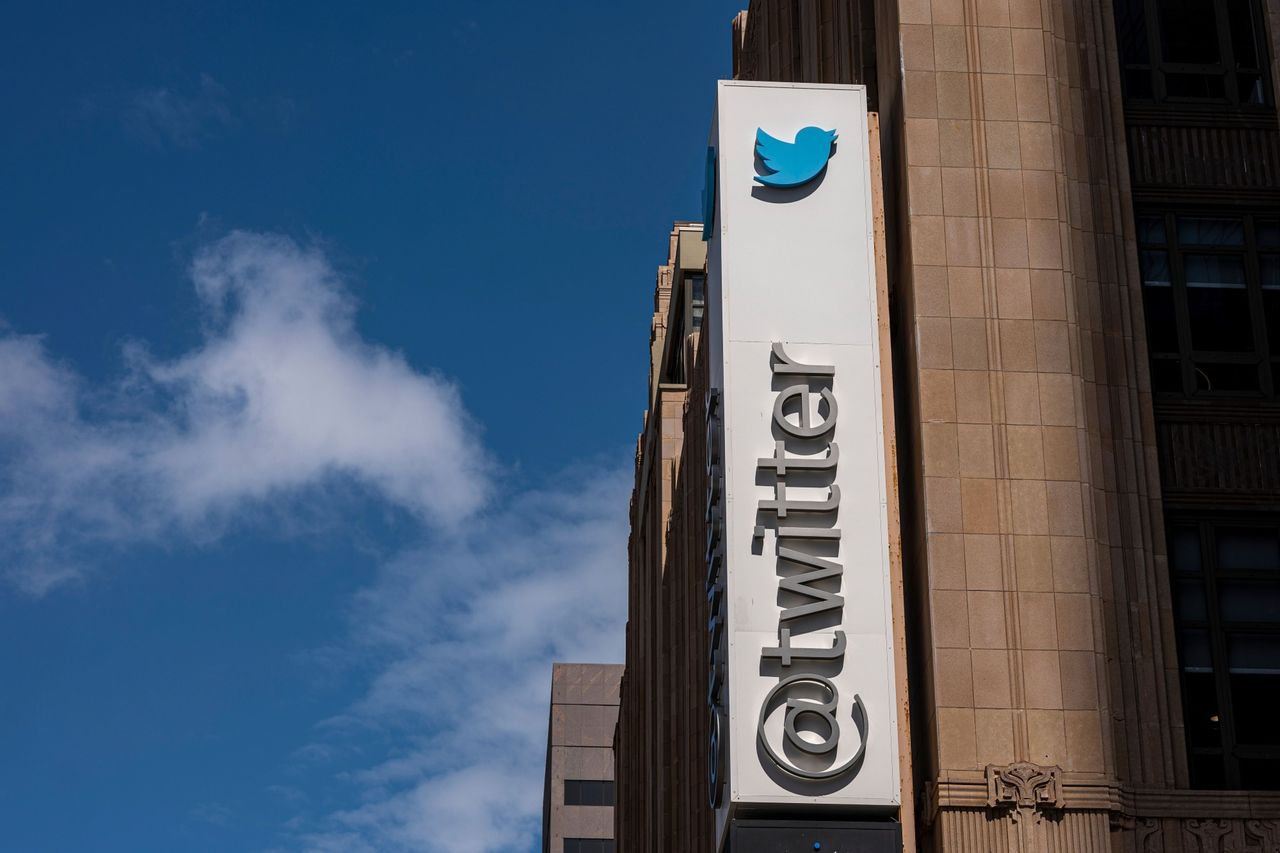Twitter Stock’s Fall Isn’t Over, Analysts Warn
How much more could it tumble?
Now that Elon Musk has decided he would rather not own Twitter, Wall Street is scrambling to think through what happens from here, and what the company might be worth on a stand-alone basis.
Twitter shares plunged 11.3% on the news Monday, but still seemed priced to reflect the possibility a deal will still happen at a lower price. If there is no sale, Twitter stock could tumble another 30% from here, analysts say.
In a letter disclosed in an SEC filing late Friday afternoon, attorneys for Musk said that he is terminating his $54.20-a-share deal to buy Twitter (ticker: TWTR), asserting that the company breached the terms of their agreement by not fully disclosing details relating to the use of fake accounts on the site. Twitter denies withholding this information, and said that it will file suit to force Musk to complete the deal.
Twitter closed Monday at $32.65 a share, well below the bid price, but arguably still well above the company’s intrinsic value. Most Street analysts seem to think that Twitter as an independent company with no acquisition potential based on the current outlook would trade in the $25 to $30 a share range.
Keep in mind that 2022 has been a terrible year for social media stocks. While Twitter is off 23% for the year to date, that is a relatively modest decline compared with Pinterest (PINS), off 49%; Meta (META), off 51%; and Snap (SNAP), down 70%.
MKM Partners analyst Rohit Kulkarni notes that Snap, Pinterest and Meta are all trading at all-time low multiples of forward Ebitda, or earnings before interest, taxes, depreciation and amortization. Twitter, he notes, is trading at about 16 times, but troughed at 12 times at the March 2020 low, and previously dropped to 9 times in April 2016. Put a low-teens multiple of Ebitda on the stock, he says, and the shares would be in the $24 to $26 range. Other analysts draw the same conclusion.
There are differences of opinion on the Street about what happens from here, but they mostly fall into two camps.
A few analysts think the deal gets renegotiated at a lower price. Benchmark analyst Mark Zgutowicz asserts that US$37 would be a “good compromise,” and that a deal at that level would be in the best interest of shareholders. “We suspect neither party wants a long, drawn-out legal battle, and Twitter’s board must contemplate the potential harm to its employee and shareholder base of any additional internal data exposed in litigation. We do believe Elon Musk ultimately wants to run Twitter and believe the best course of action for both parties is a compromise.”
Mizuho analyst James Lee likewise asserts that “the most reasonable scenario” would be to negotiate a deal at a lower price, or a settlement that allows Musk to walk away, avoiding protracted litigation.
Others think Twitter is going to have to go it alone: CFRA analyst Angelo Zinino agrees that a settlement or revised offer would be the best-case scenario for both sides, but he also thinks Twitter would have a hard time accepting a price reduction large enough to satisfy Musk.
His view that the most likely scenario is that Twitter stays independent. But Zinino warns that the company faces a difficult advertising market for the second half and into 2023, and he also sees risk that the company could see a huge talent drain as doubts grow about the company’s future.
“With Musk officially walking away from the deal, we think Twitter’s business prospects and stock valuation are in a precarious situation,” Zinino writes. “We see risks from an uncertain advertising market, a damaged employee base, and concerns about the status of fake accounts/strategic direction as a stand-alone company.”
Wedbush analyst Dan Ives says the situation is a “nightmare” for Twitter, that results in an “Everest-like” uphill climb “to navigate the myriad of challenges ahead,” including employee turnover, advertising headwinds, and investor worries around the fake account issues, among other things.
JMP Securities analyst Andrew Boone asserts that his gut reaction is that Musk no longer wants to own Twitter, with macro conditions worsening and growing employee attrition. Boone writes in a research note that he “increasingly” thinks Twitter’s future will be to remain independent.
Other scenarios are possible. Conceivably, with the stock down sharply, an alternative bidder could emerge, though none has surfaced so far, and there are no obvious buyers.
It’s also possible that negotiations fail, resulting in protracted litigation, in which either Musk wins, and walks away from the deal, or Musk loses, and gets stuck paying the original price. In either litigation scenario, you can imagine endless appeals that could drag on for eons.
Reprinted by permission of Barron’s. Copyright 2021 Dow Jones & Company. Inc. All Rights Reserved Worldwide. Original date of publication: July 11, 2022.
 Copyright 2020, Dow Jones & Company, Inc. All Rights Reserved Worldwide. LEARN MORE
Copyright 2020, Dow Jones & Company, Inc. All Rights Reserved Worldwide. LEARN MORE
This stylish family home combines a classic palette and finishes with a flexible floorplan
Just 55 minutes from Sydney, make this your creative getaway located in the majestic Hawkesbury region.
More than one fifth of Australians are cutting back on the number of people they socialise with
Australian social circles are shrinking as more people look for ways to keep a lid on spending, a new survey has found.
New research from Finder found more than one fifth of respondents had dropped a friend or reduced their social circle because they were unable to afford the same levels of social activity. The survey questioned 1,041 people about how increasing concerns about affordability were affecting their social lives. The results showed 6 percent had cut ties with a friend, 16 percent were going out with fewer people and 26 percent were going to fewer events.
Expensive events such as hens’ parties and weddings were among the activities people were looking to avoid, indicating younger people were those most feeling the brunt of cost of living pressures. According to Canstar, the average cost of a wedding in NSW was between $37,108 to $41,245 and marginally lower in Victoria at $36, 358 to $37,430.
But not all age groups are curbing their social circle. While the survey found that 10 percent of Gen Z respondents had cut off a friend, only 2 percent of Baby Boomers had done similar.
Money expert at Finder, Rebecca Pike, said many had no choice but to prioritise necessities like bills over discretionary activities.
“Unfortunately, for some, social activities have become a luxury they can no longer afford,” she said.
This stylish family home combines a classic palette and finishes with a flexible floorplan
Just 55 minutes from Sydney, make this your creative getaway located in the majestic Hawkesbury region.






















